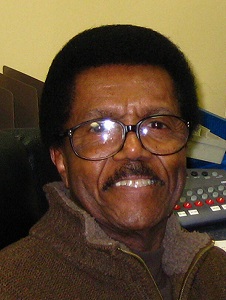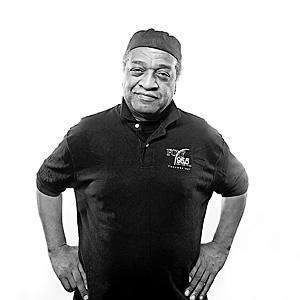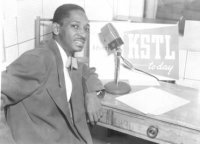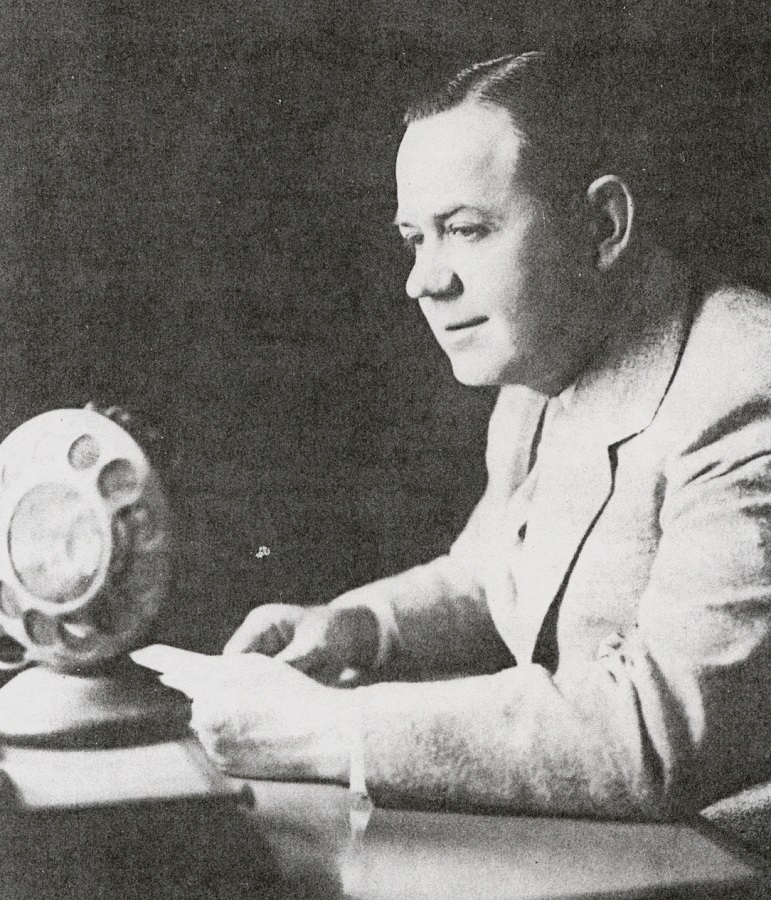Radio HOF
Laux, France
France Laux – Legacy
France Laux has been called St. Louis’ “pioneer baseball voice,” a tribute that referred to his work with the St. Louis Browns and St. Louis Cardinals. He was the voice of baseball for 19 years on KMOX starting in 1929. The Sporting News presented him with its first award to the nation’s outstanding major league broadcaster in 1937. He did radio play-by-play in nine World Series and nine Major League All-Star Games, but his work wasn’t limited to baseball. Laux also broadcast boxing, football, wrestling, hockey and basketball. His voice was also heard on KXOK in St. Louis as part of his play-by-play baseball agreements, but his association with KMOX lasted 30 years. His list of broadcast booth sidekicks reads like a “Who’s Who” of sports: Gabby Street, Dizzy Dean, Pepper Martin, Joe Medwick, Leo Durocher and Frankie Frisch. He often bragged that he had worked for 20 years without missing a broadcast or arguing with a player or umpire.



